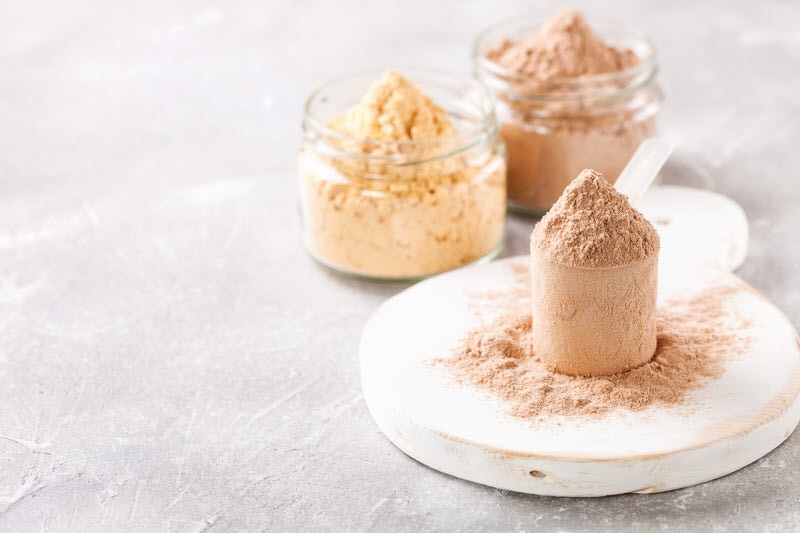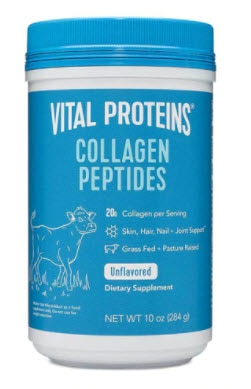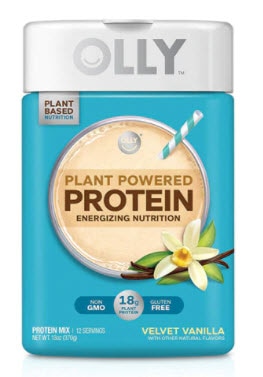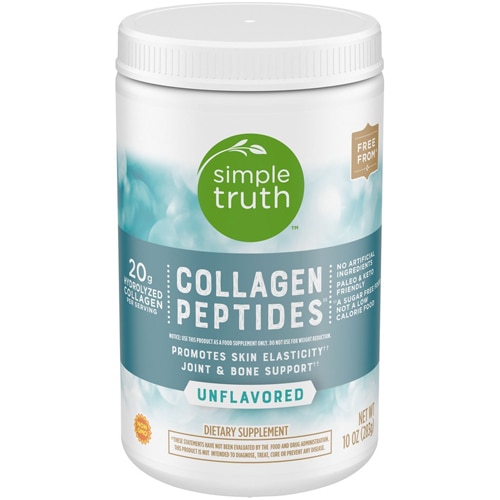In our modern world, we have thousands of options for
nutritional supplements. While the variety allows us to find the ones that are best for our needs, it can be difficult to differentiate between what each option actually offers in terms of benefits and support.
Protein powder and
collagen powder are two of those products that you often see being used—but which one will best support your health and fitness needs?

While protein and collagen powders are often seen as interchangeable, in reality, these nutrition supplements have some clear differences that you need to be aware of. Yes, both products are excellent sources of amino acids, organic compounds that form the vital protein macronutrient.
However, before buying one or the other, learn more about the unique benefits and functions of these two powder varieties.
What is collagen powder, and how can it benefit you?
The main ingredients in this nutrition supplement are bioactive collagen peptides which account for an estimated 30 percent of the body’s overall protein mass, according to the
Experimental and Therapeutic Medicine Journal. Collagen is usually extracted from the bones and cartilage of marine or land animals, but some plant-based collagens can also be derived from sources like algae.
The amino acid chains in collagen are hugely valuable for the body in many ways. First and foremost, they provide essential nutrients to connective tissues in the skin, ligaments, tendons, bones, joints, blood vessels and muscles.
In addition, some of the primary amino acids in collagen—such as alanine, glycine, proline and arginine—help stimulate the production of keratin,
according to the journal Nutrients, which can lead to the growth, elasticity, firmness and cell renewal of hair, skin, teeth and nails.
Why choose collagen powder?
Given these particular health benefits, collagen powder is a strategic choice for a number of reasons. If your wellness goals are to increase bone density, joint and skeletal range-of-motion, blood circulation, and tooth, hair, skin and nail strength, this will be supportive for you.
When choosing a brand, select one that’s made with grass-fed, pasture-raised or wild-caught sources.
What is protein powder, and how can it benefit you?
Most protein powders contain the essential branched-chain amino acids leucine, valine and isoleucine, according to
Nutrients. These branched-chain amino acids specifically boost muscle growth and repair muscular tissue, which makes protein powder a suitable choice if your goal is to build lean muscle, as well as enhance workout performance and recovery.
What’s more, protein powder can optimize the volume, frequency, and duration of both aerobic and anaerobic exercise programs, when combined with resistance training, according to the
Journal of Sports Medicine. But the research continues, protein powder on its own will not create muscle gains—this supplement must be used in conjunction with physical exertion in order to achieve results.
Unlike collagen powder, which is mostly animal-based, protein powder can be made from many different sources. A common ingredient in a protein powder is whey, a milk derivative that contains all the essential amino acids, and is highly beneficial for muscular function, strength and repair, suggests the
Journal of Exercise Nutrition and Biochemistry.
However, not all protein powders contain animal byproducts—there are numerous plant-based varieties like soy, pea, brown rice and hemp if you adhere to a vegan diet.
Why choose protein powder?
If you’re struggling to see physical gains, but are putting in the work in the gym or your home workouts, you may need a boost of protein. In this case, protein powder can be a supportive option for your health goals.
Protein powder or collagen powder?
Both protein and collagen powders can help boost your macronutrient intake and support a balanced, healthy diet. However, each contains different amino acid chains that perform their own unique functions in the body, meaning these nutrition supplements are not equal substitutes for one another.
Choosing between protein and collagen powder will ultimately be a matter of your fitness and health goals. If you need a supplement to enhance total-body wellness, then reach for collagen powder. But if your needs are specific to exercise and muscle gains, then protein powder is the most beneficial option for you.
Finally, when choosing protein and collagen powders, remember that some brands are safer than others to consume. Look for a reputable quality-testing seal like the
NSF International Supplement and Vitamin Certification or
USP Dietary Supplement Verification Program. This will ensure the powder you choose does not contain harmful levels of contaminants and toxic chemical fillers and instead, gets you one step closer to feeling stronger, healthier and happier.
Featured products: 

 While protein and collagen powders are often seen as interchangeable, in reality, these nutrition supplements have some clear differences that you need to be aware of. Yes, both products are excellent sources of amino acids, organic compounds that form the vital protein macronutrient.
However, before buying one or the other, learn more about the unique benefits and functions of these two powder varieties.
While protein and collagen powders are often seen as interchangeable, in reality, these nutrition supplements have some clear differences that you need to be aware of. Yes, both products are excellent sources of amino acids, organic compounds that form the vital protein macronutrient.
However, before buying one or the other, learn more about the unique benefits and functions of these two powder varieties.





